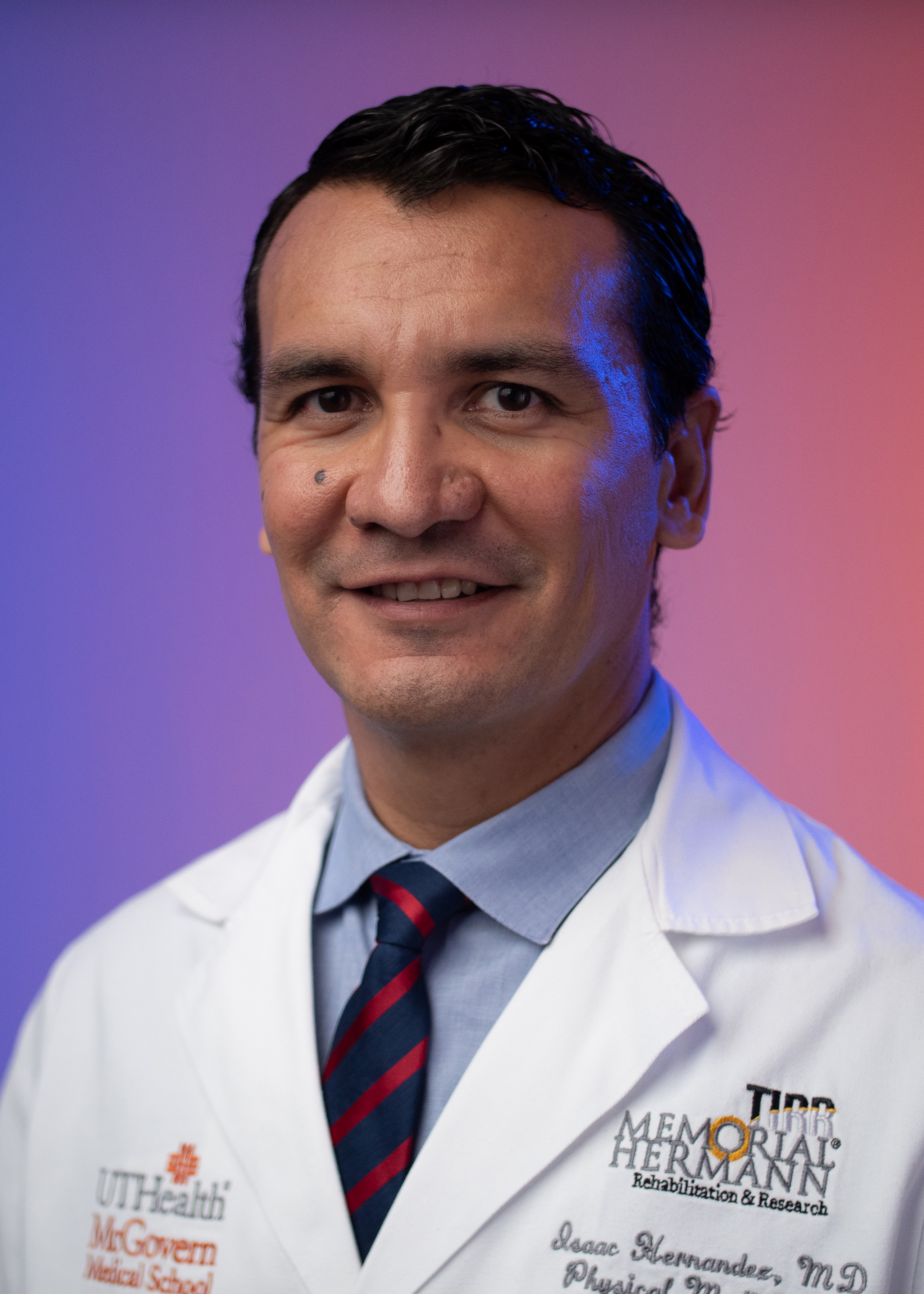Spinal Cord Injury Medicine Fellowship
Spinal Cord Injury Medicine Fellowship (ACGME-accredited)
Welcome from the Program Director – Isaac Hernandez Jimenez, MD

The Spinal Cord Injury Medicine Fellowship prepares fellows to develop skills in acute Spinal Cord Injury (SCI) management, acute rehabilitation, and long-term care of persons with SCI. Our fellows spend at least six months of the year at The Institute of Rehabilitation and Research at Memorial Hermann (TIRR MH) and Memorial Hermann Hospital-Texas Medical Center (MHH-TMC) while doing inpatient rehabilitation, consults and outpatient work. They will also spend at least four months at the Michael E. DeBakey VA Medical Center SCI Service Line. Furthermore, fellows have the flexibility of two months of electives that can include additional outpatient or inpatient rotations, research, or participating in one of the courses offered by our university (e.g. research, administration, education). This arrangement provides a well-balanced exposure to both acute and chronic SCI in multiple practice settings.
Rotation locations:
Michael E. DeBakey VA Medical Center
TIRR Memorial Hermann and Memorial Hermann – Texas Medical Center
In summary, unique strengths of our fellowship experience include:
- A good balance of both acute and chronic SCI, VA and private/academic practice, inpatient and outpatient experience, in the settings SCI-professionals typically practice.
- Opportunities for learning and mentorship from a total of > 10 actively practicing, subspecialty- certified SCI physicians.
- Opportunities to learn from providers with SCI expertise within the rehabilitation team (e.g. PT/OT/SLP, RN, psych, RT, etc) as well as with consultants with similar expertise (e.g. hand surgery, urology, internal medicine, etc.)
- A strong faculty commitment to fellow education, in which the faculty often outnumber the fellows.
- An opportunity to practice in a freestanding rehabilitation hospital with an SCI center that is internationally recognized for excellence in clinical care and research.
See more about the Spinal Cord Injury Fellowship here.